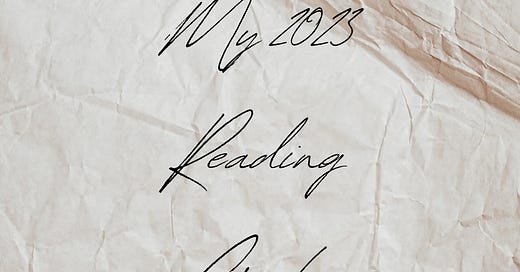Les Miserables is my favorite musical. Jean Valjean’s path to redemption, led by love and guided by mercy, never fails to transport me. I’m a better person each time I listen to it.
It was high time I read the - gulp - 1,400-page novel, but it was my writing that finally motivated me to check it out of the library. I’ve wanted to write an article about Cosette, Fantine’s daughter and Valjean’s adopted daughter, but I wanted to make sure the musical adaptations faithfully represented her, especially since each actress brings her own interpretation to the role.
So I began to read.
One third of the way into the book, I’m not yet sure if my original idea for an article will work, but I love getting the full story behind my beloved characters.
The very full story. Victor Hugo is brilliant, opinionated, and verbose, digressing frequently into the histories of minor characters, or the quintessence of French institutions like monasteries and mendicants, or the idiosyncrasies of the Battle of Waterloo. His Waterloo summary alone took me two hours, as Hugo gives his theories about why the great Napoleon failed.
Though I was a bit put off by this history - I needed to know what happened to Jean Valjean, not Napoleon Bonaparte! - it is probably the most eloquent piece of history I have ever read. If you want to learn about the Battle of Waterloo from the perspective of a Frenchman who somehow simultaneously deplores and idolizes Napoleon, you can find a great essay nestled a quarter of the way through Les Miserables.
It also revealed my own ignorance of, arguably, the most significant European of the nineteenth century. My high school global history course taught me little more than “short - horse - Corsica - Elba - Waterloo,” and I still have no idea how he took power following the fall of Robespierre.
Yet Napoleon’s presence is felt in many of my favorite stories. The militia and naval characters of Jane Austen are so active because of Napoleon’s wars with Britain; a major character dies at Waterloo in Vanity Fair; and the Napoleonic Wars are the entire backdrop of War and Peace. Napoleon changed the face of Europe, and his downfall accelerated Britain’s naval domination for decades.
Still, Victor Hugo gave me the first idea of what Bonaparte has meant for the French, and I decided I didn’t just need to learn about Napoleon. I need to improve my knowledge of French history, read some of their thinkers poets, and enjoy more of their novels.
I would also like to listen to more French music and look at French artists, but I am less knowledgeable in these areas. If you can recommend any artists or composers, please do!
I hold my reading goals pretty lightly. I hope that I can realistically finish this list this year, but I don’t want to neglect other goals and resolutions. Also, I will definitely be reading other books along with these. There’s plenty of room for spontaneity, even if you make detailed goals.
2023 Reading Goals
Finish Les Miserables by Victor Hugo (roughly 850 pages to go)
Tartuffe by Molière (a play)
Candide by Voltaire (a satirical novella)
The French Revolution by Hilaire Belloc (a relatively brief history)
Scaramouche by Rafael Sabatini (historical fiction about the French Revolution)
Napoleon: A Life by Andrew Roberts (a biography)
The Count of Monte Cristo by Alexandre Dumas (a novel that takes place after Napoleon)
Le Petit Prince by Antoine de Saint-Exupéry (a children’s classic)
An anthology of French poetry (TBD; I’ll probably favor a survey of medieval to modern)
Bonus: Pensées by Blaise Pascal (philosophical musings of a great mathematician)
Bonus: something by Jean-Jacques Rousseau (I don’t know where to start)





I'm impressed with your list, Madeline. I love Le Petit Prince by Antoine de Saint-Exupery since I read it for the first time in college. Good luck on your 2023 goals!
Happy 2023! Your reading goals are quite impressive. I was wondering if you ever heard of the Five Foot Shelf also known as the Harvard Classics? The Harvard Classics were designed to give all the elements of a general university or liberal education, self taught, in one year with 15 minutes of diligent reading a day using Dr. Eliot's reading schedule. The mission of the Harvard Classics is to provide the means of obtaining such knowledge of ancient and modern literature as deemed essential to be a cultivated person."
https://www.myharvardclassics.com/